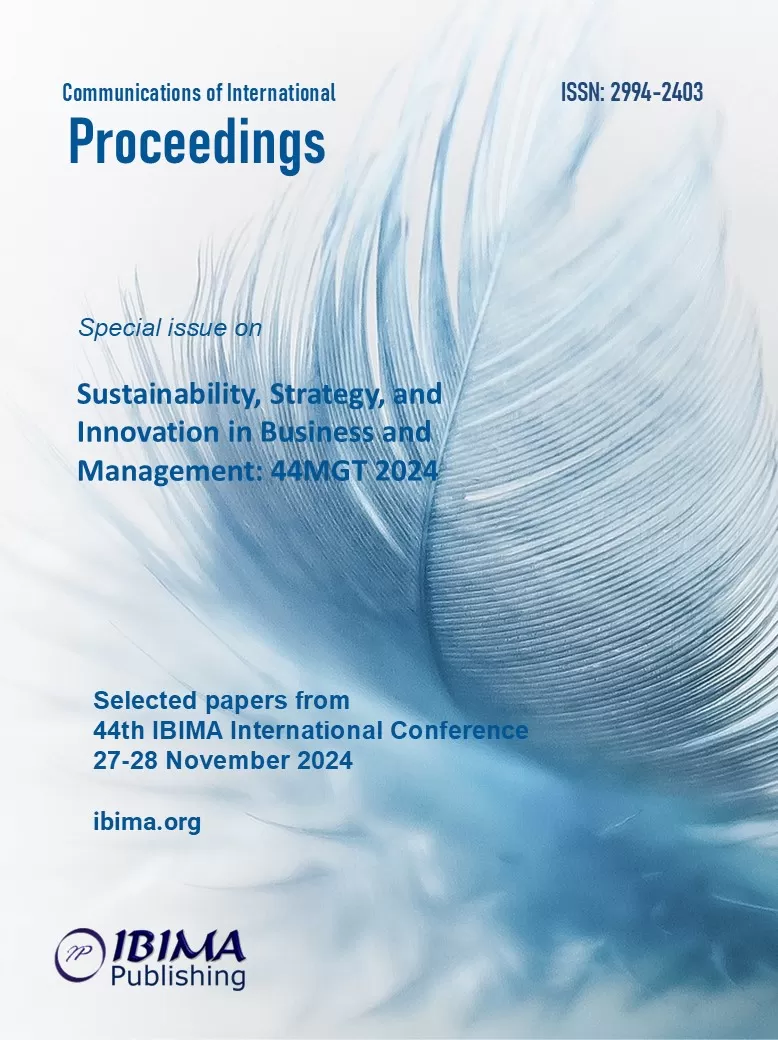
Marek Drożdż
1 AGH University of Science and Technology, Faculty of Management, al. Mickiewicza 30, Krakow, 30059, Poland

The aim of the publication is to present an effective methodology for building a restaurant business development program using the SWOT method and then, as part of empirical research, to practically apply this method. The genesis of the article was the task set for a team of marketing specialists to develop a development program for a specific restaurant in Krakow. The restaurant, which had great location potential, a high-standard building, a beautiful large plot of land, richly developed, did not achieve a satisfactory level of profit, nor was it popular despite being located in a wealthy district.
To develop the program, the researchers reviewed the professional literature, but they could not find an effective methodology that would allow for the formulation of the correct purpose of the business, or a method for assessing the business or a method for building a development program along with postulates for changes for managers. The authors themselves developed such a universal methodology based on SWOT method and verified it in a specific elite Italian restaurant in Krakow. The methodology specifies the goals of the restaurant’s operation, taking into account the goal set by the managers or owners, an assessment of the current functioning through interviews, surveys, and analysis of opinions on the Internet. Based on the opinions and results obtained, a SWOT analysis is built, the results of which allow for the assessment of the current functioning of the business and the development of an appropriate development program for the implementation of the intended goal.
The empirical goal is to determine the correct restaurant development strategy and modify this strategy to maximize the economic effects of the restaurant’s operations. It was also assumed to develop postulates for managers aimed at changes in the functioning of the business, organizational and personnel changes. The methodology is based on the following research:
-interview with the manager/owner of the restaurant, who is to determine the goal set for the business, -target customer groups, -economic assumptions, -local vision carried out in several visits at different times and days, -development of a method for assessing the activity: Interviews with residents of the local community – surveys Interviews with restaurant customers – surveys Interviews with staff Analysis of customer opinions on websites
Based on the conducted research, a SWOT analysis was developed, which allowed for the assessment of the restaurant’s potential and the assessment of its current functioning. The analysis of opportunities and threats revealed both appropriate actions and errors in management, which allowed the development of a program to repair or improve the operation of the business, and also allowed the construction of postulates for managers in the direction of changes that would allow the achievement of the assumed goals by managers.
The aims of practical researches was to conduct a detailed SWOT analysis of the Italian SCG Restaurant located in Cracow, Poland. As a reputable establishment offering authentic Italian cuisine, SCG operates in a competitive environment shaped by Cracow’s rich cultural diversity and evolving gastronomic landscape. The research identifies and evaluates the restaurant’s internal strengths, such as its distinguished brand image, dedication to authentic dishes, and strategic positioning in Cracow’s prominent tourist district. Additionally, the analysis addresses internal weaknesses, including challenges related to cost management, workforce efficiency, and maintaining culinary innovation while preserving traditional offerings. The external environment is assessed to explore opportunities for growth, highlighting trends such as the increasing demand for genuine culinary experiences, the potential for digital marketing and delivery services, and collaborations with local events and tourism initiatives. However, the analysis also identifies significant threats, including heightened competition from new entrants, economic uncertainties affecting consumer spending, and shifting preferences towards more diverse or health-conscious cuisine. This study provides key insights into leveraging the restaurant’s strengths while addressing weaknesses, capitalizing on opportunities, and mitigating threats. Strategic recommendations are presented to enhance the restaurant’s competitive position, improve operational efficiency, and ensure long-term growth in Cracow’s dynamic market.